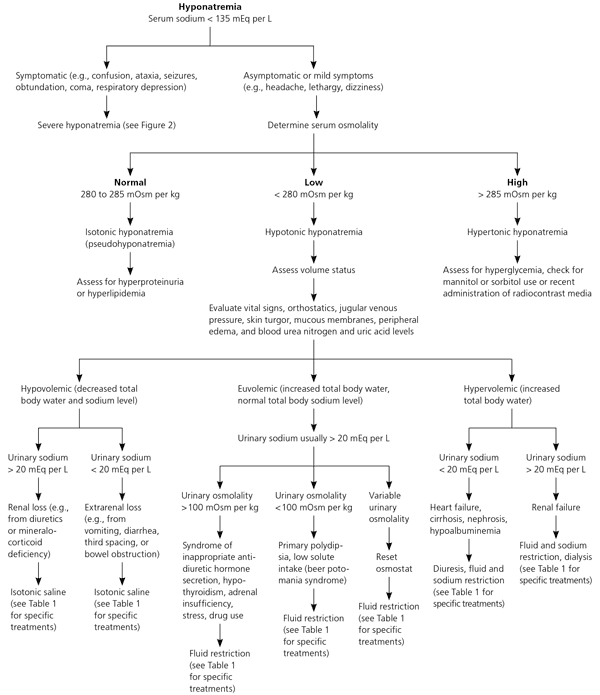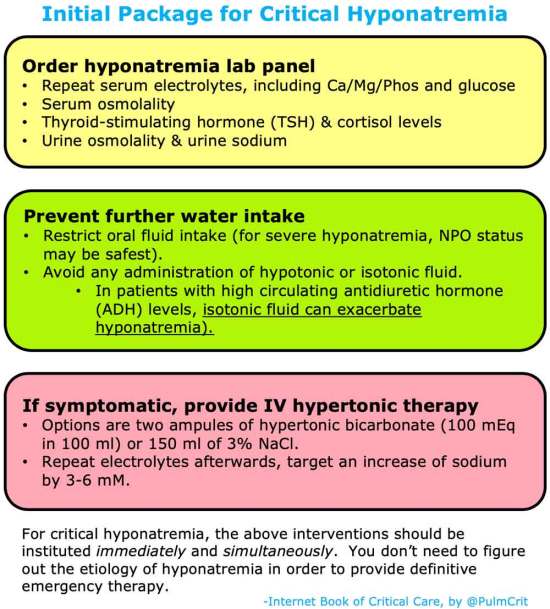
Hyponatremia is a condition in which there is a decrease in the amount of sodium in the body. Normal sodium levels are maintained in the body, but when there is not enough fluid in the body to flush out toxins, problems and problems such as hyponatremia can arise. The medical term for this condition is hypernatremia. Treatment for Hyponatremia usually involves addressing the underlying cause.
Treatment of mild hyponatremia Hyponatremia is treated with diuretics. In mild cases, the patient may be given intravenous fluids to replace electrolytes lost in the urine. Diuretics are used in severe cases when the kidneys are not functioning properly and therefore urine cannot produce enough fluid for the patient’s body.
Treatment of patients with severe hyponatremia. Treatment of severe cases of hyponatremia requires medical attention. If your symptoms persist despite the addition of diuresis or other treatments, the diagnosis of hyponatremia is likely to be confirmed.
In some cases, more than one treatment may be required, and in some cases, additional treatments such as beta-blockers may also be prescribed. In some cases, even surgery may be required. In these cases, medications that are used to treat seizures can be used to treat the patient.
Surgery Hyponatremia in many cases may require surgery to correct the condition. Surgery, especially in severe cases, may require the use of intravenous medication to reduce the amount of fluid in the body in order for the patient’s organs to function properly.
In severe cases of hyponatremia, the kidneys may be removed, and in some cases, the patient may need to remain in the intensive care unit to replace fluid loss. Because the kidneys are so important, a lot of research has been done to develop drugs that help the kidneys work better. This helps prevent future complications in the future.
Symptoms of hyponatremia. Some symptoms of hyponatremia include dizziness, dizziness, high blood pressure, vomiting, abdominal pain, nausea, seizures, and irregular heartbeat. If your symptoms persist after these symptoms, or if they get worse, you may have hyponatremia.

Hyponatremia can be treated with a variety of medications, but treatment options will depend on the type of symptoms and the severity of your problem. If you have hyponatremia, remember that hyponatresthesia can cause serious side effects such as low blood pressure and seizures.
The medications used for hyponatremia can have many side effects, so treatment options will differ depending on your symptoms. If you are taking medications for hyponatremia, you should be aware of any potential dangers they pose and discuss this information with your doctor. You should be aware that in some cases, hyponatremia can be fatal.
Alternative Treatments While many doctors recommend medications, there are other forms of hyponatremia treatment you can try that can be done at home or in your doctor’s office. These alternative treatments include homeopathy and chiropractic medicine.
Homeopathy Many people believe that homeopathy is an effective treatment for hyponatremia because it uses various elements of plants and herbs that can help counteract the symptoms and increase the effectiveness of certain medications used to treat hyponatremia. The basic tenet of homeopathy is that an illness or disease is caused by an imbalance in the body, and homeopathic remedies – ホメオパシー療法
try to balance the levels of chemicals and nutrients in the body. This often happens with hyponatremia, as some of the medications used to treat this condition may be too strong for certain parts of the body.
Chiropractic. Chiropractic is one of the most commonly recommended alternative treatments for hyponatremia. Chiropractic adjustments are sometimes used to help restore normal spinal alignment and promote healing in patients’ nervous systems.
Chiropractic and spinal manipulation helps release discs and spinal cord that have been damaged in cases where there is a problem with the nervous system. Manipulation and traction are used to relieve pain and relieve spasms, which can prevent further damage. problems from occurrence.